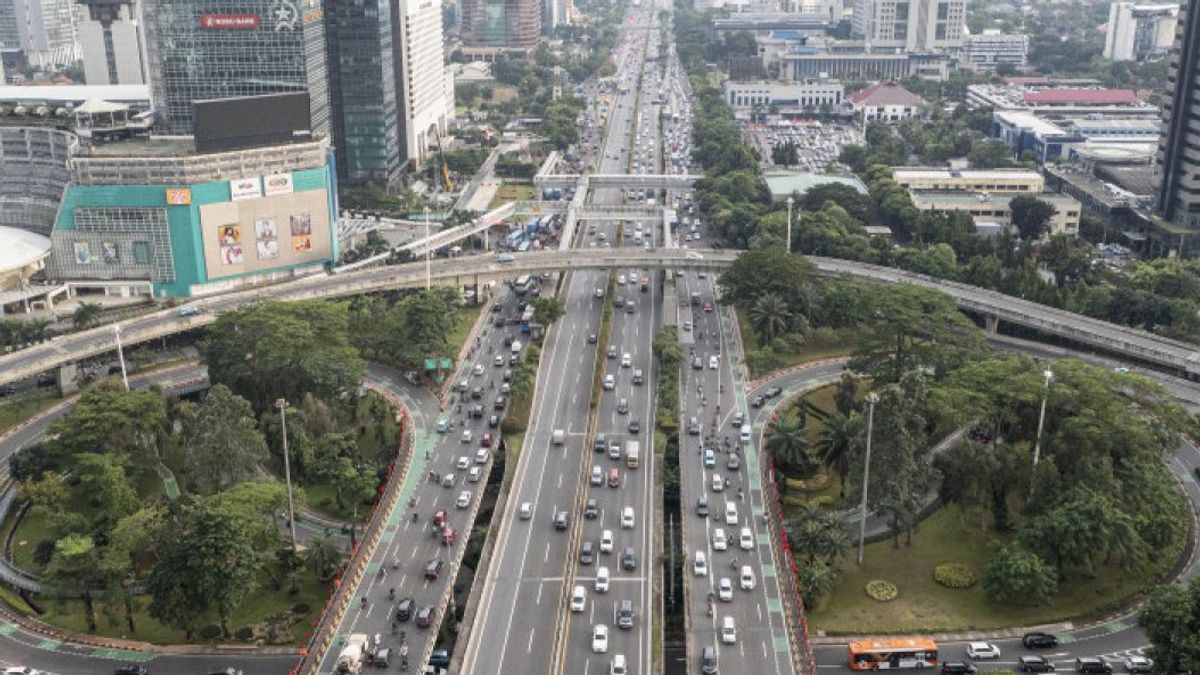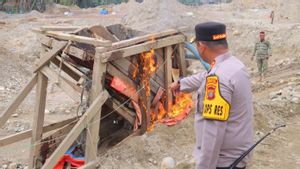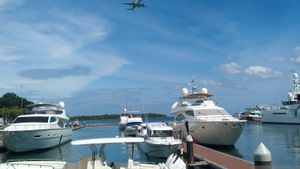JAKARTA - Air quality in DKI Jakarta, on Saturday morning May 18, is in the unhealthy category based on data released by the IQAir air quality monitoring site.
Based on observations on Saturday at 05.30 WIB, quoted by Antara, the air quality index (AQI) in Jakarta is at 180, with a smooth particle (particulate matter / PM) 2.5 at a concentration rate of 19.4 micrograms per cubic meter.
This concentration is equivalent to 97 times the annual air quality guide value of the World Health Organization (WHO).
The air quality monitoring site with the latest time also listed Jakarta as the city with the fourth worst air quality in the world.
The city with the worst air quality in the world on Saturday was Baghdad (Irak) at 271, Kinshasa (Kongo) at 254, Delhi (India) at 244.
Apart from Jakarta, the air quality monitoring site also noted that a number of other major cities in Indonesia were categorized as unhealthy, including South Tangerang (Banten) at 178, Surabaya (East Java) at 167.
People are also recommended to avoid outdoor activities, wear masks while outside, closing windows to avoid dirty outside air.
Meanwhile, the Environmental Information and Hygiene System of the DKI Jakarta Provincial Environment Agency stated that the air quality in Jakarta for PM2.5 air pollution is in the medium to unhealthy category.
Of the five locations included in the monitoring, two of them were unhealthy with numbers 104 and 105, namely in Lubang Buaya and Kelapa Gading, while the other three were in the medium category, such as in Kebon Jeruk with an index at 98, the HI Roundabout 93 and Jagakarsa 74.
Moderate categories mean air quality levels that do not affect human or animal health but affect sensitive plants.
Meanwhile, the unhealthy category is the level of air quality which is detrimental to humans or groups of animals that are sensitive or can cause damage to plants or aesthetic values.
SEE ALSO:
Previously, the BMKG revealed that Jakarta began entering the dry season in May and was predicted to reach its peak in June 2024. At the same time, Jakarta is predicted to be hit by air pollution again.
BMKG Greenhouse Gas Informative Sub-Division Coordinator Albert Nahas said the global climate phenomenon in the form of El Nino, La Nina and Positive/Negative Dipole Mode also affected pollutants in Indonesia, including in Jakarta.
Albert said La Nina affected PM2.5 concentration in Indonesia and divided Indonesia into East and West based on PM2.5 responses to La Nina.
One of the impacts, PM2.5 concentration tends to be high at night until morning and low during the day.
The English, Chinese, Japanese, Arabic, and French versions are automatically generated by the AI. So there may still be inaccuracies in translating, please always see Indonesian as our main language. (system supported by DigitalSiber.id)
















